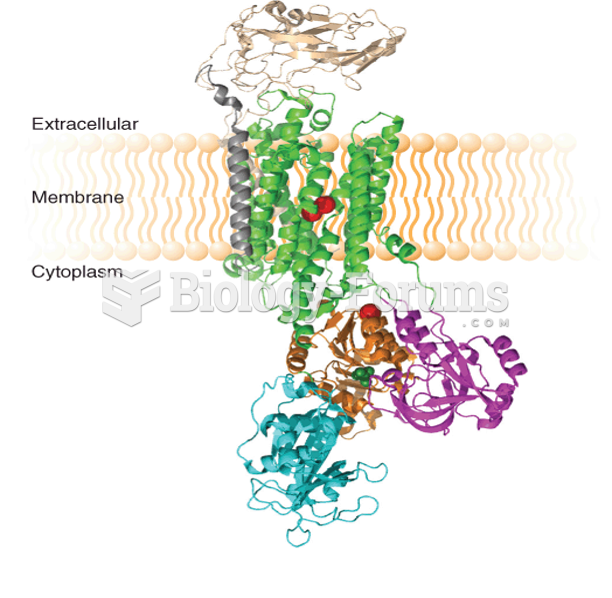|
|
|
The Centers for Disease Control and Prevention has released reports detailing the deaths of infants (younger than 1 year of age) who died after being given cold and cough medications. This underscores the importance of educating parents that children younger than 2 years of age should never be given over-the-counter cold and cough medications without consulting their physicians.
There are more bacteria in your mouth than there are people in the world.
Pregnant women usually experience a heightened sense of smell beginning late in the first trimester. Some experts call this the body's way of protecting a pregnant woman from foods that are unsafe for the fetus.
Immunoglobulin injections may give short-term protection against, or reduce severity of certain diseases. They help people who have an inherited problem making their own antibodies, or those who are having certain types of cancer treatments.
There are major differences in the metabolism of morphine and the illegal drug heroin. Morphine mostly produces its CNS effects through m-receptors, and at k- and d-receptors. Heroin has a slight affinity for opiate receptors. Most of its actions are due to metabolism to active metabolites (6-acetylmorphine, morphine, and morphine-6-glucuronide).
 Plasma protein binding and drug availability: (a) drug exists in a free state or bound to plasma pro
Plasma protein binding and drug availability: (a) drug exists in a free state or bound to plasma pro
 Grace Service, a YMCA missionary, explained that these porters worked at the base of Mount Omei in S
Grace Service, a YMCA missionary, explained that these porters worked at the base of Mount Omei in S





